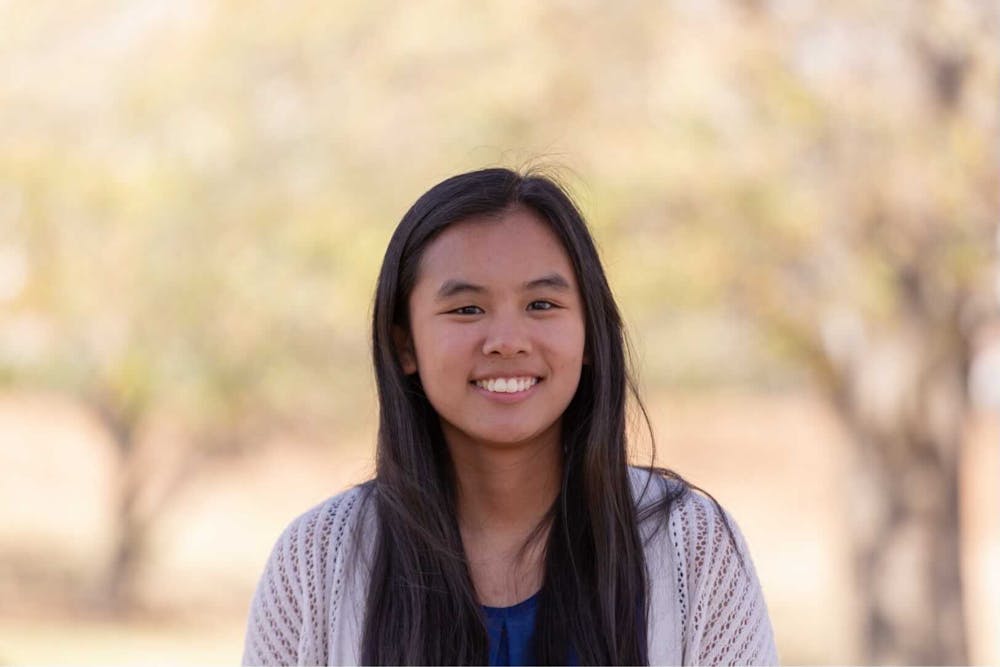Amid the United States’ reckoning with racial injustice, a new fellowship is giving an American University graduate student the opportunity to engage with the local community on the history of enslaved people in D.C.
This fall marks the launch of the two-year Public History Graduate Fellowship in the History of Slavery and Its Legacies in D.C., created by the White House Historical Association (WHHA) and AU’s Antiracist Research & Policy Center. Inaugural fellow Mia Owens, who is pursuing a master’s degree in public history, will conduct research to expand upon the historical context and understanding of what the lives of enslaved people were like within D.C. and the White House.
AU developed the fellowship through AU’s influence on the slavery working group. Christine Platt, the center’s managing director, said that the University’s relationship with the WHHA allowed the organizations to establish this fellowship collaboratively.
“AU’s history department actually has a long-standing partnership with the White House Historical Association,” Platt said. “There are professors who teach some of the White House history courses, some of the other folks are alums, and so that’s how it sort of came about.”
Owens will spend the first year of the fellowship working with the WHHA on their Slavery in the President’s Neighborhood initiative, which analyzes “the complicated past and the paradoxical relationship between slavery and freedom in the nation's capital,” according to the organization’s website.
During her second year, Owens will team up with the Antiracist Research and Policy Center, where the primary objective will be to expand upon the initial working group’s research regarding slavery’s legacy at AU. They also plan to develop course materials that will allow the community to better understand the historical significance of this issue and how to pursue more conversations on racial injustice.
While some details are not yet finalized, Platt maintains a clear vision of the sort of impact that she hopes the fellowship’s results will have on the community.
“We want that research to be much broader,” Platt said. “And so one of the things, for example, that we’ve discussed is working in partnership with Mia and maybe some of the professors in the public history department to put together a curriculum for AUx students.”
Aside from expanding upon the AUx curriculum, there are also other possibilities being explored in an effort to make this information more accessible on campus. Malgorzata Rymsza-Pawlowska, the director of AU’s graduate public history program and another faculty adviser for the fellowship program, believes that there are a variety of options for introducing Owens’ work to the AU community in a meaningful way.
“What we really envision is that members of our campus community have the resources made available to them so that they can engage with this history in a number of different ways, so another possibility would be developing resources and offering support so that interested people and groups can find ways to collaborate on research and meaning-making,” Rymsza-Pawlowska said.
Prior to being selected as the inaugural fellow for this program, Owens devoted much of her life to investigating the history of racism in America. As an undergraduate at Samford University in Alabama, she conducted oral research in the Rosedale neighborhood of Homewood, Alabama, a predominantly Black area with strong ties to the civil rights movement. Owens said she views her role in the Public History Graduate Fellowship as another opportunity to advance her comprehension of slavery’s legacy in the District.
“I think a lot of my background has been learning about the civil rights movement and how that has impacted the way that society is informed and the way that people have experienced, especially living in Birmingham and living in Alabama,” Owens said. “I think I’m just really excited about being able to expand upon that by looking more at the way that slavery has affected the nation’s capital.”
Her goal is that the fellowship will result in some sort of material that students and faculty can refer to in their attempts to participate in these dialogues.
“What I’m hoping to accomplish with this fellowship is just to make this history more broadly known to more people,” Owens said.





